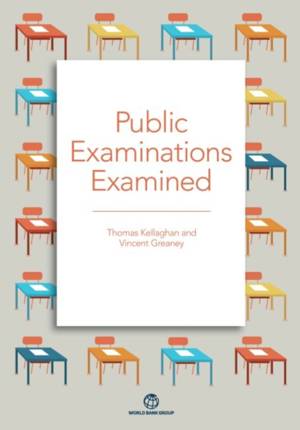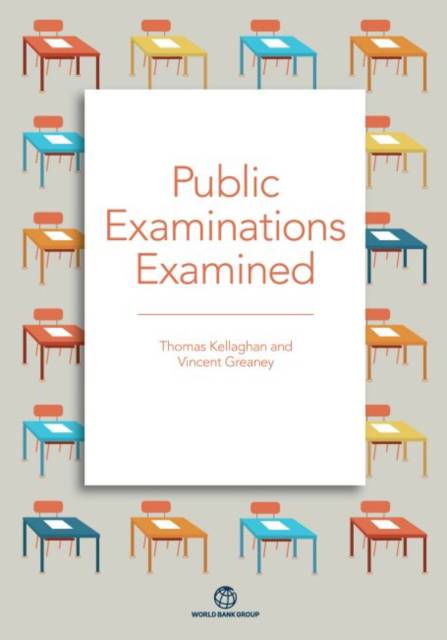
- Retrait gratuit dans votre magasin Club
- 7.000.000 titres dans notre catalogue
- Payer en toute sécurité
- Toujours un magasin près de chez vous
- Retrait gratuit dans votre magasin Club
- 7.000.0000 titres dans notre catalogue
- Payer en toute sécurité
- Toujours un magasin près de chez vous
72,95 €
+ 145 points
Description
High-stakes public examinations exert a dominant influence in most education systems. They affect both teacher and student behavior, especially at the middle and upper levels of secondary education. The content of past examinations tends to dictate what is taught and how it is taught and, more important, what is learned and how it is learned. By changing aspects of these examinations, especially their content and format, education systems can have a strong positive impact on teacher behavior and student learning, help raise student achievement levels, and better prepare students for tertiary-level education and for employment. Examination agencies, many of which have followed the same procedures over decades, can learn from the successes and failures of other systems. This book addresses current issues related to the development, administration, scoring, and usage of these high-stakes public examinations, identifying key issues and problems related to examinations in many emerging market economies as well as in advanced economies. The book's primary audience consists of public examination officials on national, regional, and state examination boards, but the book should also be of interest to senior education policy makers concerned with certification and learning achievement standards, to academics and researchers interested in educational assessment, to governmental and education agencies responsible for student selection, and to professionals at development organizations. "This extremely well-written and comprehensive book offers a timely review of the diversity of public examination practices worldwide; of the tensions between examinations and learning; and of the technical expertise involved in the creation of valid, reliable, and fair assessments. It reminds us that as "the diploma disease" takes hold with an ever-greater intensity at every stage of education worldwide, and the commercial business of testing flourishes, those concerned with educational quality and meaningful learning must be on guard to prevent the assessment tail wagging the educational dog." Angela W. Little, Professor Emerita, Institute of Education, University College London "This book is very well structured and written and draws on the authors' remarkable global knowledge across countries and histories. It will be a great asset both to administrators responsible for examinations and to academics and other professionals who seek to understand the nature and impact of examinations of different types and in different settings." Mark Bray, UNESCO Chair Professor of Comparative Education, University of Hong Kong; and former Director, UNESCO International Institute for Educational Planning "I am sure that Public Examinations Examined, which thoroughly analyzes the practice of public examinations in different countries and makes profound and well-grounded conclusions, will arouse very great interest and will serve to further improve public examinations." Victor Bolotov, Distinguished Professor, Higher School of Economics, National Research University, Moscow; member, Russian Academy of Education; and former Deputy Minister of Education, Russian Federation
Spécifications
Parties prenantes
- Auteur(s) :
- Editeur:
Contenu
- Nombre de pages :
- 350
- Langue:
- Anglais
Caractéristiques
- EAN:
- 9781464814181
- Date de parution :
- 19-11-19
- Format:
- Livre broché
- Format numérique:
- Trade paperback (VS)
- Dimensions :
- 175 mm x 251 mm
- Poids :
- 725 g

Les avis
Nous publions uniquement les avis qui respectent les conditions requises. Consultez nos conditions pour les avis.






